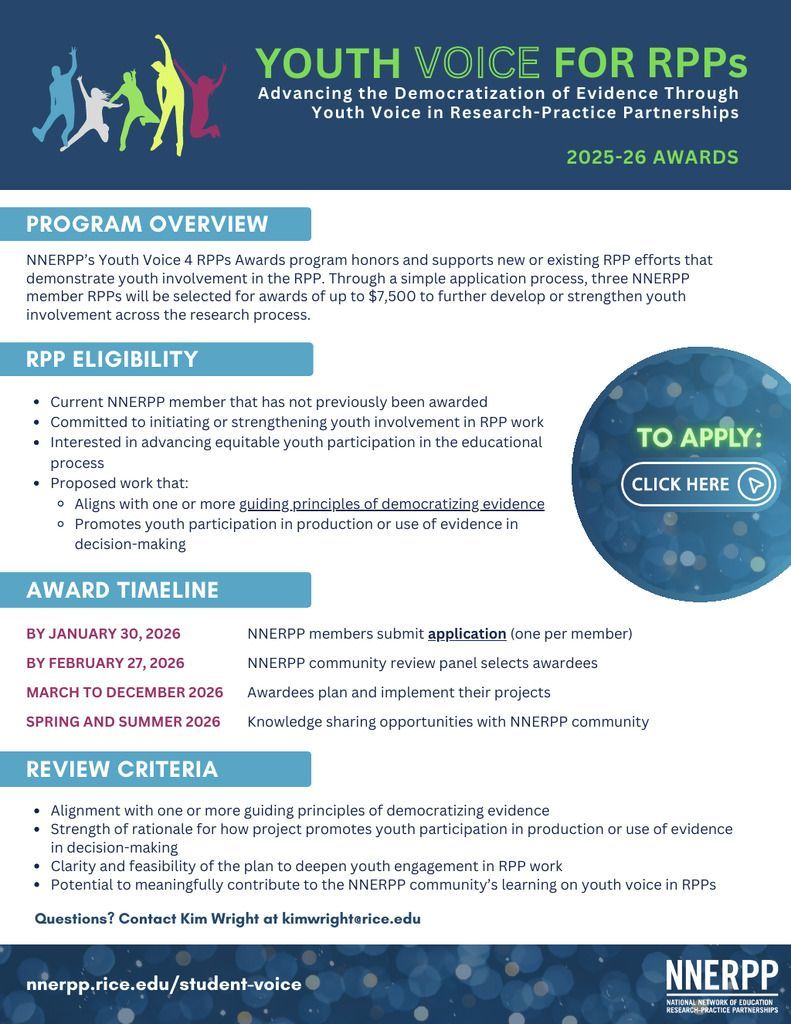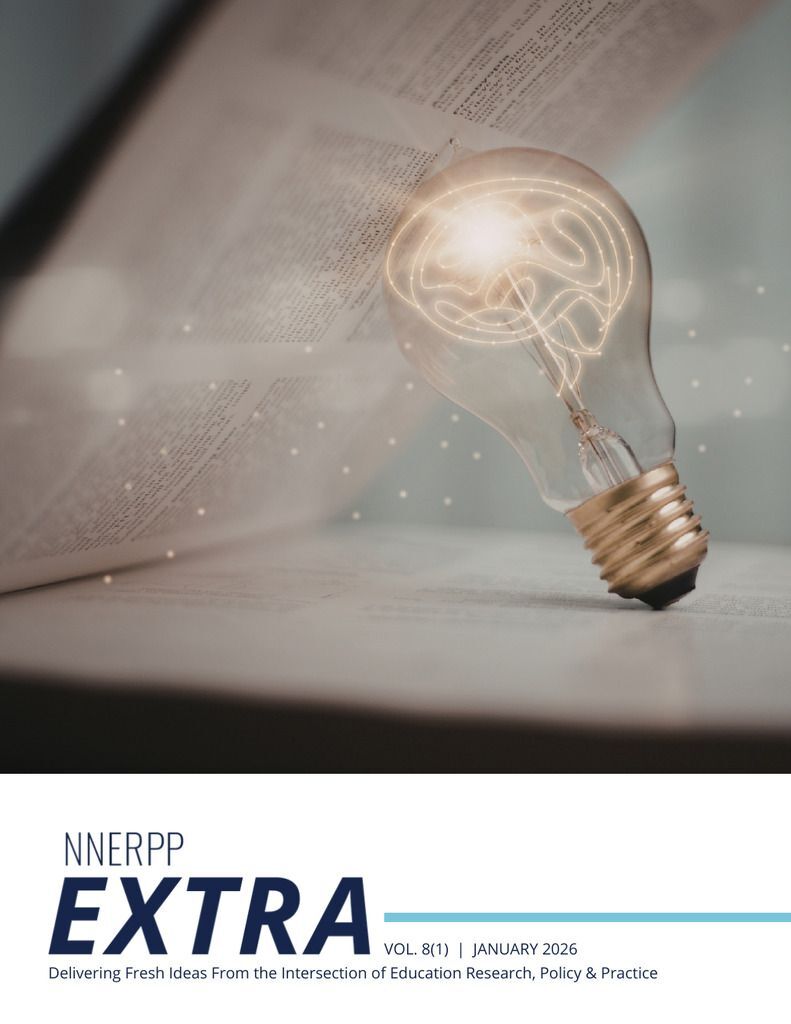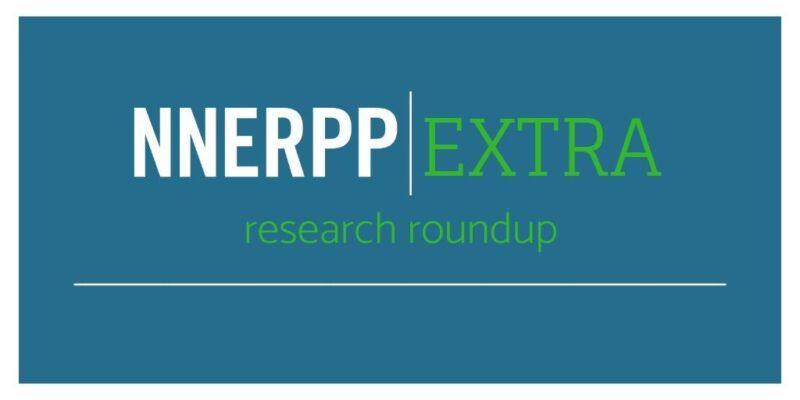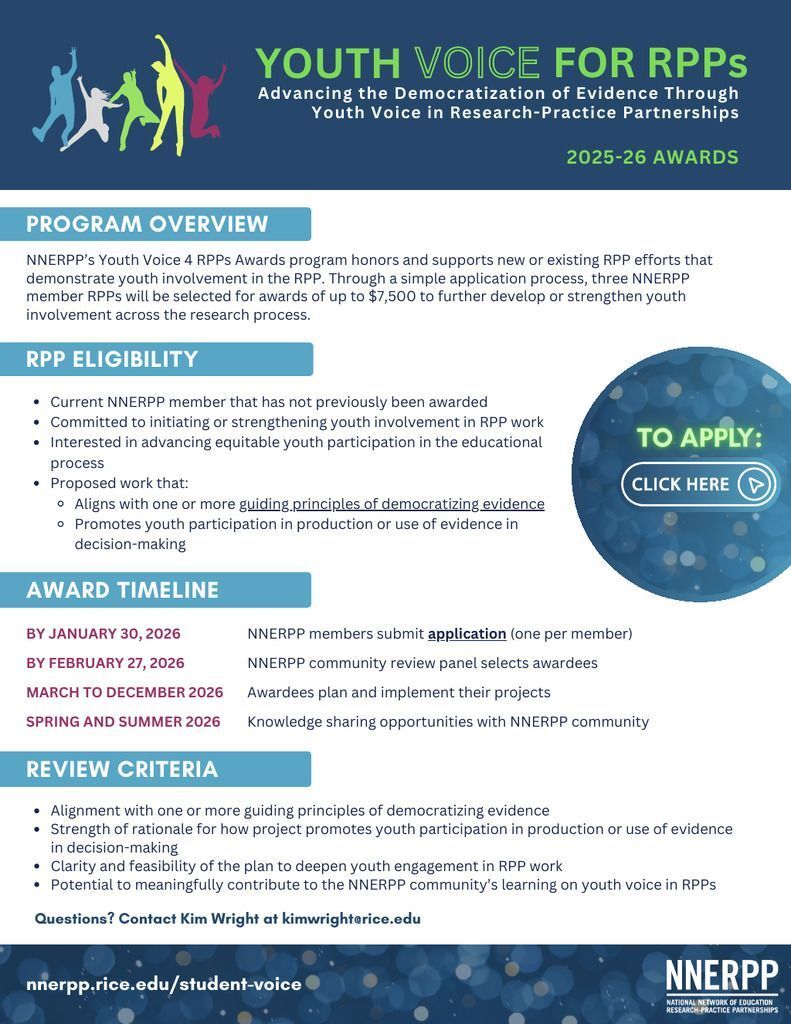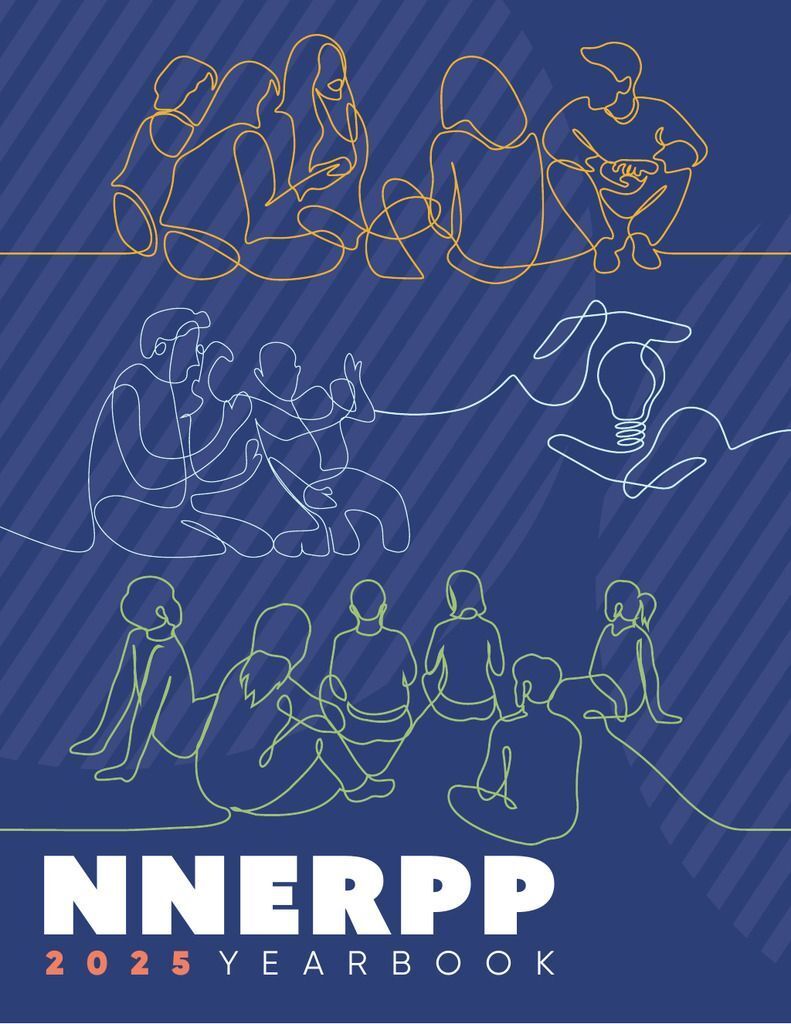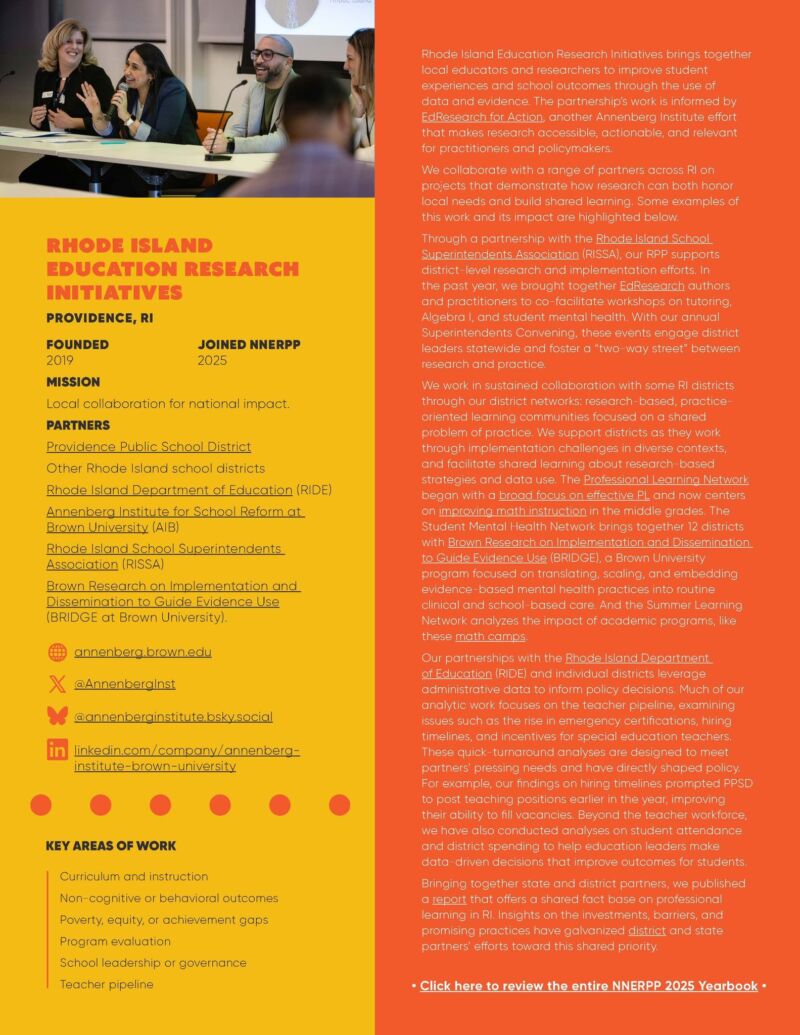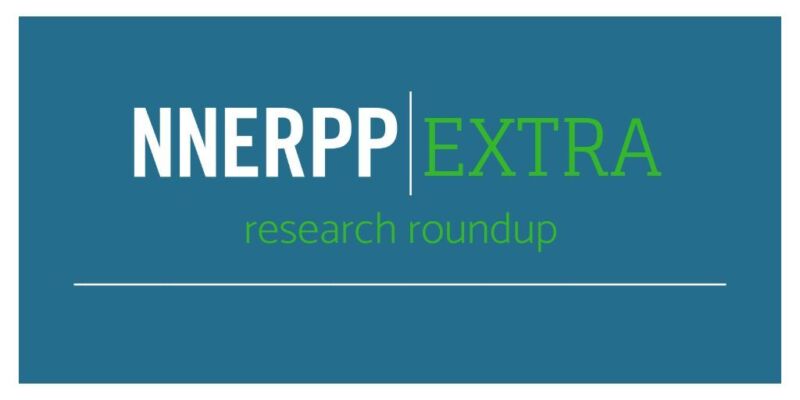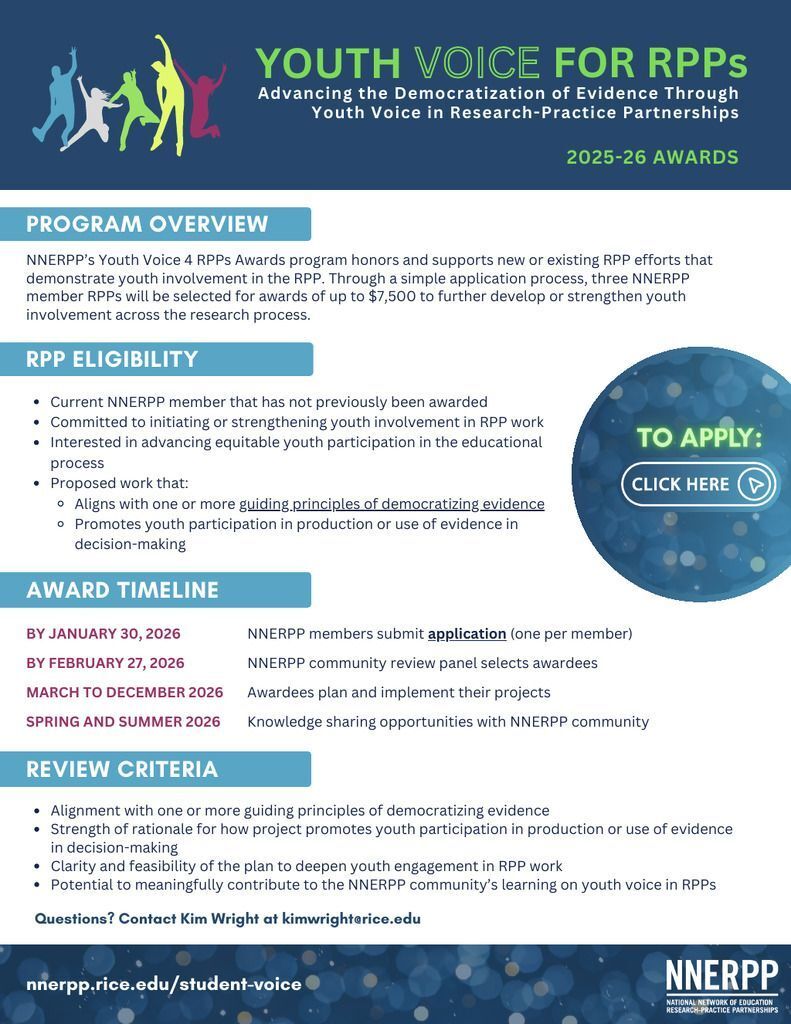
Welcome to NNERPP Extra, your space for exploring the intersection of education research, policy, and practice!
Welcome to our new issue
We just published a new issue of our quarterly magazine NNERPP Extra! We are excited to share the first issue of Volume 8 with you. Thank you for joining us for another year – or if you are a first-time reader, thank you for newly joining us! In this issue, we “visit” six different partnerships in NNERPP through a collection of stories of RPP impact, we take a look at how how situational mapping might be used in RPPs to examine the influences that can affect within- and cross-team collaboration, and we hear advice from young people on how RPPs can partner with and truly center youth. As always, a special thank you goes to our wonderful guest authors who contributed to this issue. Happy reading!
Scroll down to discover the articles or click below to download the full PDF issue.
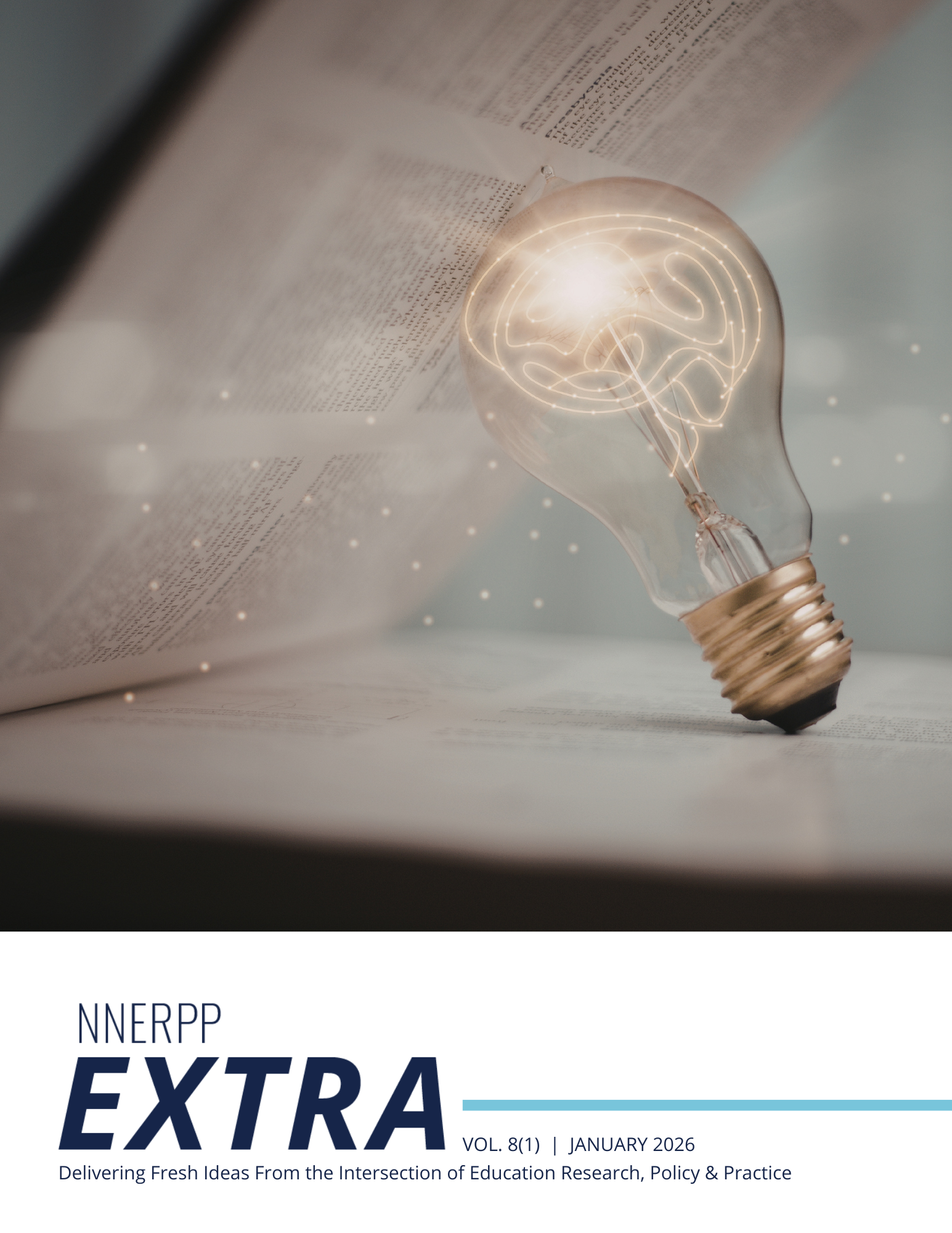
Explore the articles from our new edition!
The magazine is organized into four recurring sections:
Research Insights
In this section, NNERPP members share a behind-the-scenes look at partnership research

One powerful way to illustrate the impact of RPPs is to simply hear –and share– their stories: What have they worked on in a given timeframe? How has the work impacted students, teachers, and communities? Here, we “visit” six RPPs from across the country (as well as internationally) for a look at what they have been up to in 2025 – and what difference their work has made.
RPP Deep Dive
This section explores pressing challenges commonly encountered in RPPs and possible solutions to these

How could RPPs navigate the complex systems and relationships inherent to partnership work? RPP team members brought together by a study conducted under the New York City Early Childhood Research Network propose situational mapping analysis as one way to examine the multiple and interacting influences that can affect within- and cross-team collaboration.
Extra Credit
This section features shorter pieces covering a variety of topics through a “Spotlight” or “How To” format

How can RPPs partner with and truly center youth? Youth from YouthCARES (Youth Civic Action for Resilient Environmental Solutions) share five pieces of advice based on their experiences.
Research Headlines
A roundup listing all of our members’ research from the past quarter

Rhode Island Education Research Initiatives
for NNERPP Extra?
We invite you to share your writing with the RPP world by joining our terrific group of guest authors who have contributed their ideas and insights over the years!
Discover the latest research from RPPs across the country
Our research roundup lists new research from NNERPP members for each quarter, updated every Monday. You can also explore previous quarterly roundups.
Recent Research Headlines
Swiper Carousel
Practical Takeaways from the Rhode Island Professional Learning Network
- Professional Learning
Rhode Island Education Research Initiatives
Promising Practices for School Organization of Mental Health Supports
- Health and Mental Health
Rhode Island Education Research Initiatives
Counselors’ Insights on Early Postsecondary Opportunities: Trends from the 2025 Tennessee Educator Survey
- Counselors
- Postsecondary
Tennessee Education Research Alliance
Teachers’ Experiences with Career and Technical Education: Trends from the 2025 Tennessee Educator Survey
- Career and Technical Education / Work-Based Learning
- Teachers / Principals / Superintendents
Tennessee Education Research Alliance
Stanford-Sequoia K–12 Collaborative: Who Are Long-Term English Learners and How Can School Districts Support Them?
- English Learners / Dual Language Learners / Bilingual Learners
Gardner Center
Michigan Teacher Shortage Study: 2026 Report
- Teachers / Principals / Superintendents
Education Policy Innovation Collaborative
Connection, Trust, and Learning: Student Attendance in the Middle and High School Grades Following the COVID-19 Pandemic
- Absenteeism
- Attendance
- COVID-19
UChicago Consortium
Branching Out Series, Report 3: “Getting Your Foot in the Door”: Challenges and Opportunities Facing Artists and Arts Graduates in Non-Arts Jobs
- Postsecondary
- Workforce
Illinois Workforce and Education Research Collaborative
2025 Tennessee Educator Survey Snapshot: High School and Beyond Plans
- Teachers / Principals / Superintendents
Tennessee Education Research Alliance
Understanding Chronic Absenteeism and Examining a Strategy to Improve Attendance
- Absenteeism
- Attendance
- School Climate
Georgia Policy Labs
Investing in Career and Technical Education: Exploring the Costs of CTE-Dedicated High Schools in New York City
- Career and Technical Education / Work-Based Learning
- High School
Research Alliance for New York City Schools
Supporting Students in Transition to and from High School
- Elementary School
- School Transition
Metropolitan Educational Research Consortium
Supporting Students in Transition to and from Elementary School
- Elementary School
- School Transition
Metropolitan Educational Research Consortium
School Diversity and Social Capital: Conditions That Foster Bridging Ties in Schools
- Peer Networks
- School Diversity
Detroit Partnership for Education Equity & Research
Strategies and Considerations for Effective School Inspection Systems
- School Quality
REL Mid-Atlantic
Promising Pathways: College and Industry Routes to Good Jobs for Illinois Youth From Low-Income Families
- Postsecondary
- Workforce
Illinois Workforce and Education Research Collaborative
Summary Findings: Career Development Opportunities for DC Public Schools Students
- Career Development
- High School
- Middle School
DC Education Research Collaborative
Missouri Public School Funding: A Primer
- School Finance
PRiME Center St. Louis University
Emergent Bilinguals: A Review of Education Policy in Missouri
- English Learners / Dual Language Learners / Bilingual Learners
PRiME Center St. Louis University
Characterizing Teachers in State-Identified Schools
- Teachers / Principals / Superintendents
Georgia Policy Labs
Michigan’s 2024-25 Benchmark Assessments
- Assessments
- COVID-19
Education Policy Innovation Collaborative
The State of Computer Science in Illinois High Schools Series: Part 5 – How Does CS Education Vary by District Across Illinois?
- STEM & Computer Science
Illinois Workforce and Education Research Collaborative
The State of Computer Science in Illinois High Schools Series: Part 4 – What Factors Predict CS Student Outcomes?
- STEM & Computer Science
Illinois Workforce and Education Research Collaborative
Missouri Voters on School Quality: Ideological and Geographic Breakdown
- School Quality
PRiME Center St. Louis University
The Educational Attainment of Chicago Public Schools Students: 2024
- High School
- Postsecondary
UChicago Consortium
District Progress and Variance in Reducing Teaching Vacancies in Illinois: A Second-Year Evaluation of the Teacher Vacancy Grant Pilot Program
- Teachers / Principals / Superintendents
Illinois Workforce and Education Research Collaborative
Strategic Staffing in Tennessee: Trends from the 2025 Tennessee Educator Survey
- Teachers / Principals / Superintendents
Tennessee Education Research Alliance
Economic Insecurity, Health Stressors, and Student Engagement During COVID-19
- COVID-19
Georgia Policy Labs
Missouri Learning Standards (MLS): What Are They And Why Do They Matter?
- Assessments
- Students
PRiME Center St. Louis University
School Leadership Pipelines: Trends from the 2025 Tennessee Educator Survey
- Teachers / Principals / Superintendents
Tennessee Education Research Alliance
Breaking Barriers to Child Care Licensing in Arkansas
- Early Childhood Ed
Office for Education Policy
Research on English Learner Classification and Reclassification
- English Learners / Dual Language Learners / Bilingual Learners
Stanford-Sequoia K-12 Research Collaborative
Instructors’ Experiences in the Technical College System of Georgia’s eCampus Initiative
- Postsecondary
Georgia Policy Labs
Implementing Phone-Free Schools: Insights from Arkansas Administrators
- Teachers / Principals / Superintendents
- Technology
Office for Education Policy
Leading Through Change: Arkansas Administrators’ Perspectives and Wellbeing in 2025
- Teachers / Principals / Superintendents
Office for Education Policy
Arkansas School Readiness Assistance (SRA) Program: Fall 2025 Policy Changes – Impact Assessment
- Child Care
Office for Education Policy
